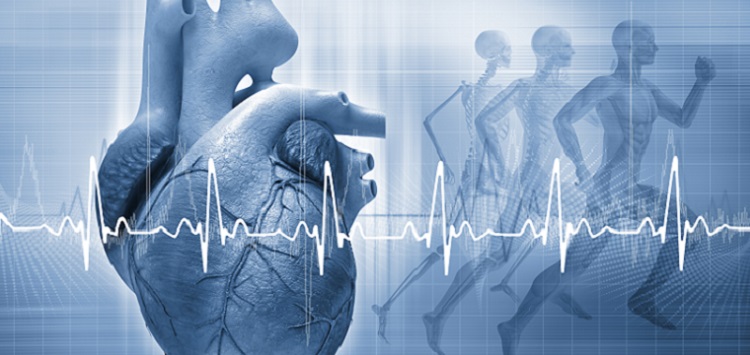How to elevate your heart health with Cardiology care
How to elevate your heart health with Cardiology care
Blog Article
Comprehending the Relevance of Cardiology in Modern Healthcare Providers
Cardiology plays an important duty in contemporary health care, especially as heart problem remains to be the leading root cause of death worldwide. Advancements in diagnostics and therapy have actually changed person treatment, allowing earlier treatments and improved end results. In addition, the shift towards preventative cardiology equips people to manage their wellness proactively. As modern technology continues to advance, the combination of innovative remedies may even more redefine cardiology's effect on public wellness, motivating a more detailed assessment of emerging patterns and their ramifications.
The Frequency of Cardiovascular Disease and Its Influence On Public Health And Wellness
Heart illness stays the leading reason of fatality around the world, its impact expands much beyond individual clients to affect public wellness systems and economies. The high frequency of heart illness puts a significant strain on healthcare resources, requiring boosted funding for therapy, rehabilitation, and avoidance programs. Public health and wellness efforts should deal with threat variables such as obesity, smoking cigarettes, and sedentary lifestyles, which contribute greatly to the climbing incidence of heart conditions.Moreover, the economic concern related to cardiovascular disease is enormous, including not just straight medical costs however likewise indirect expenditures associated with shed efficiency and early mortality. Communities encounter difficulties in taking care of these expenses, often leading to disparities in health care gain access to and results. As the populace ages and lifestyle-related risks remain to intensify, the urgency for efficient cardiology treatments becomes extremely important. Resolving heart disease is not only an issue of specific health yet likewise an important public health and wellness top priority.
Advancements in Heart Diagnostics and Imaging Techniques
Current advancements in cardiac diagnostics and imaging techniques have actually transformed the area of cardiology, enhancing the capacity to check and identify heart diseases. Strategies such as cardiac MRI, CT angiography, and echocardiography have become significantly advanced, giving detailed photos of heart structures and functions. These modalities permit the early recognition of problems like coronary artery disease, heart failure, and valvular disorders.Moreover, developments in non-invasive diagnostics, such as wearable innovation and remote tracking gadgets, have actually encouraged people and healthcare suppliers. These devices help with real-time tracking of heart rhythms and various other vital indicators, leading to prompt treatments. In addition, expert system is being incorporated right into imaging analysis, boosting precision and effectiveness in medical diagnosis.
Advancements in Treatment Alternatives for Heart Conditions
Recent developments in cardiology have actually led to significant technologies in therapy options for heart disease. These consist of sophisticated surgical techniques that boost step-by-step end results and arising medications that supply brand-new avenues for treatment. As the field progresses, these technologies play an essential role in boosting individual care and end results.
Advanced Surgical Techniques
Developments in surgical methods have transformed the landscape of cardiology, offering new expect patients with heart conditions. Minimally intrusive procedures, such as catheter-based interventions, have substantially reduced healing times and medical facility keeps. Strategies like robotic-assisted surgery boost accuracy, enabling specialists to navigate complex physiological frameworks with higher precision. Innovations in imaging innovation promote real-time visualization throughout treatments, enhancing outcomes. Transcatheter aortic shutoff replacement (TAVR) exhibits a development in dealing with aortic constriction, enabling valve substitute without open-heart surgical procedure. In addition, hybrid methods that incorporate surgical and catheter-based techniques offer tailored solutions for numerous cardiac problems. These innovative surgical techniques not only boost client security yet likewise broaden therapy options, underscoring the vital duty of technology in contemporary cardiology techniques.
Arising Treatments and drugs
As the landscape of cardiology remains to evolve, arising medications and treatments play a pivotal duty in enhancing therapy choices for heart conditions. Technologies such as unique anticoagulants and progressed lipid-lowering agents have actually transformed the monitoring of cardio diseases, significantly lowering patient morbidity and mortality. In addition, the growth of genetics treatments and regenerative medicine provides encouraging opportunities for treating problems formerly considered irreversible. Clinical tests are continually revealing the effectiveness of these treatments, pressing the limits of standard therapies. The integration of electronic health and wellness modern technologies promotes tailored medicine, enabling for tailored therapy plans based on hereditary and way of life elements. Jointly, these developments highlight the dynamic nature of cardiology, improving person end results and redefining requirements of care in modern-day medical care.
The Duty of Preventive Cardiology in Client Treatment
Preventative cardiology plays a necessary role in individual care by focusing on the recognition of risk variables that add to heart illness. Via lifestyle adjustment approaches and very early detection methods, health care companies can efficiently lower the occurrence of cardiovascular occasions - Cardiology care. This positive method not only boosts client results yet also advertises lasting health and wellness
Threat Variable Recognition
While cardio conditions remain a leading cause of morbidity and mortality worldwide, efficient risk element recognition functions as a keystone of preventative cardiology. Identifying danger elements such as high blood pressure, diabetic issues, hyperlipidemia, and household history is crucial for early intervention. Medical care experts make use of various evaluating approaches to evaluate these variables, permitting tailored preventative procedures. Furthermore, comprehending a client's way of living selections, such as smoking cigarettes and physical inactivity, additionally notifies risk assessments. This extensive assessment enables medical professionals to create customized care plans targeted at mitigating dangers. By prioritizing threat variable recognition, medical care systems can enhance client outcomes and reduce the general burden of cardio conditions, ultimately adding to boosted public health methods and source allocation.
Way Of Life Alteration Methods
A wide variety of research studies highlights the essential function of way of life alteration methods in lowering cardiovascular disease danger. These methods encompass dietary changes, increased physical activity, smoking cessation, and weight administration. By taking on a heart-healthy diet rich in fruits, veggies, entire grains, and lean healthy proteins, individuals can lower cholesterol levels and blood pressure. Normal exercise strengthens the heart and enhances general cardiovascular health. In addition, giving up smoking cigarettes significantly lowers the threat of heart problem and improves recovery prices for those with status quo. Weight management further adds to cardio wellness by reducing various other risk elements such as diabetic issues and hypertension. Applying these way of living alters not just promotes individual health however likewise works as a cornerstone of preventative cardiology in individual treatment.
Very Early Detection Strategies
Way of life modifications considerably add to decreasing heart disease dangers, yet they are most efficient when coupled with early discovery strategies. Precautionary cardiology stresses the significance of identifying potential heart issues prior to they rise right into serious problems. Strategies such as high blood pressure monitoring, cholesterol screening, and advanced imaging modern technologies like echocardiograms play essential functions in examining cardiovascular health. Biomarkers and genetic testing also improve the precision of early detection, allowing for tailored preventive methods. Regular cardiac threat analyses encourage doctor to step in proactively, possibly preventing cardiac arrest and strokes (Cardiologist near me). By integrating these early discovery methods right into regular care, patients can gain from prompt way of life treatments and targeted therapies, inevitably enhancing and enhancing outcomes quality of life
Integrating Technology Into Cardiology Practices
As improvements in modern technology continue to improve various areas, the assimilation of innovative tools and systems right into cardiology practices has come to be essential for enhancing person treatment and outcomes. Telemedicine platforms allow cardiologists to keep an eye on patients remotely, boosting access to care while reducing the burden on health care centers. Wearable gadgets, such as smartwatches, enable continual heart rate surveillance, notifying both patients and doctors to possible issues in real-time. In addition, expert system (AI) is being made use of to assess large quantities of heart information, aiding in very early medical diagnosis and tailored therapy strategies. Advanced imaging techniques, including 3D echocardiography, boost visualization of heart structures, causing much more accurate treatments. Electronic wellness records (EHRs) improve individual information monitoring, ensuring that top article cardiologists have prompt access to vital information. Together, these technical advancements are transforming cardiology, advertising positive monitoring and boosted health results for people with cardio conditions.
The Relevance of Person Education and Involvement
Client education and interaction play a crucial function in the administration of cardio wellness. By furnishing people with understanding regarding their problems, treatment choices, and way of living changes, healthcare companies encourage people to take an active function in their treatment. This proactive strategy can result in boosted adherence to prescribed drugs, nutritional adjustments, and workout programs, ultimately decreasing the danger of complications.Engagement additionally fosters a strong patient-provider connection, encouraging open communication and trust fund. When people really feel educated and included, they are a lot more likely to voice problems and ask concerns, which can bring about better clinical results. Furthermore, academic sources, such as workshops or digital platforms, can improve understanding and advertise self-management approaches. Generally, prioritizing individual education and interaction is important for enhancing cardiovascular wellness, boosting lifestyle, and decreasing medical care costs associated with heart diseases.
Future Fads in Cardiology and Their Prospective Influence

Regularly Asked Questions
What Way Of Living Modifications Can Reduce Heart Disease Risk?
The existing inquiry addresses way of living adjustments that can considerably decrease cardiovascular disease threat. Cardiology Jupiter. Embracing a well balanced diet plan, participating in regular physical activity, keeping a healthy weight, handling tension, and staying clear of tobacco can significantly improve cardio health and wellness
Just How Can I Acknowledge Very Early Indications of Heart Issues?
Recognizing very early indicators of heart issues entails surveillance signs such as upper body discomfort, lack of breath, fatigue, and irregular heart beat. Prompt awareness of these signs can prompt needed medical examination and treatment for better end results.
What Are the Distinctions In Between Cardiologists and Heart Surgeons?
The differences between cardiologists and heart doctors depend on their functions; cardiologists largely handle and diagnose heart problems with non-invasive techniques, while cardiac cosmetic surgeons do surgical procedures to deal with architectural heart concerns. Each plays an essential, distinctive function.

How Frequently Should I Get My Heart Health Checked?
The frequency of heart medical examination varies based upon private risk aspects. Generally, adults must undertake examinations every one to two years, while those with status quo may call for more regular assessments as advised by healthcare specialists.
What Function Does Genetics Play in Heart Problem Threat?
Genes substantially affects heart problem risk, with domestic patterns indicating inherited conditions. Particular genetics can predispose people to high blood pressure, cholesterol problems, and other cardio problems, highlighting the importance of genetic testing in evaluating heart health. Heart illness continues to be the leading reason of fatality globally, its impact expands far past private people to affect public health systems and economies. Public health and wellness initiatives need to address threat aspects such as obesity, check out here smoking, and less active lifestyles, which add greatly next to the increasing incidence of heart conditions.Moreover, the economic burden connected with heart disease is tremendous, encompassing not only direct medical expenses yet additionally indirect costs associated to shed efficiency and premature mortality. Precautionary cardiology plays a crucial role in patient care by concentrating on the identification of danger elements that add to heart illness. Fabricated intelligence (AI) and device discovering are enhancing diagnostics and client surveillance, making it possible for early detection of heart illness. The distinctions in between cardiologists and cardiac doctors exist in their duties; cardiologists mostly handle and identify heart problems through non-invasive approaches, while cardiac doctors carry out medical treatments to correct architectural heart issues.
Report this page